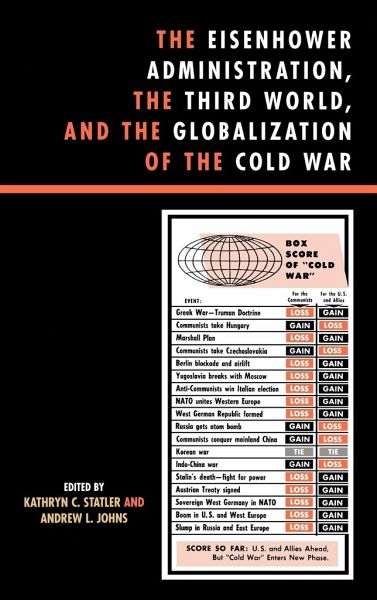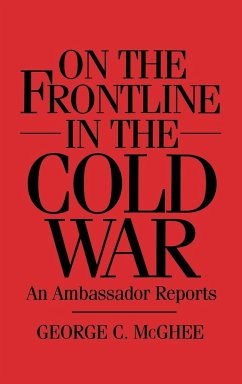
Eisenhower Administration, the Third World, and the Globalization of the Cold War
Versandkostenfrei!
Versandfertig in 1-2 Wochen
140,99 €
inkl. MwSt.

PAYBACK Punkte
70 °P sammeln!
In the United States, the Cold War is often remembered as a two-power struggle. However, increasing globalization during that time meant nations across the world became involved in the conflict. The Eisenhower administration placed an extremely high priority on victory in the Third World and seemed willing to go to virtually any length to ensure that countries in Africa, Asia, the Middle East, and the Americas remained aligned with the forces of democracy and capitalism. Relying on formerly unavailable archival research from many nations, the scholars in this volume systematically assess the i...
In the United States, the Cold War is often remembered as a two-power struggle. However, increasing globalization during that time meant nations across the world became involved in the conflict. The Eisenhower administration placed an extremely high priority on victory in the Third World and seemed willing to go to virtually any length to ensure that countries in Africa, Asia, the Middle East, and the Americas remained aligned with the forces of democracy and capitalism. Relying on formerly unavailable archival research from many nations, the scholars in this volume systematically assess the impact of the globalizing Cold War and the process of decolonization on the Eisenhower administration's foreign policy.














